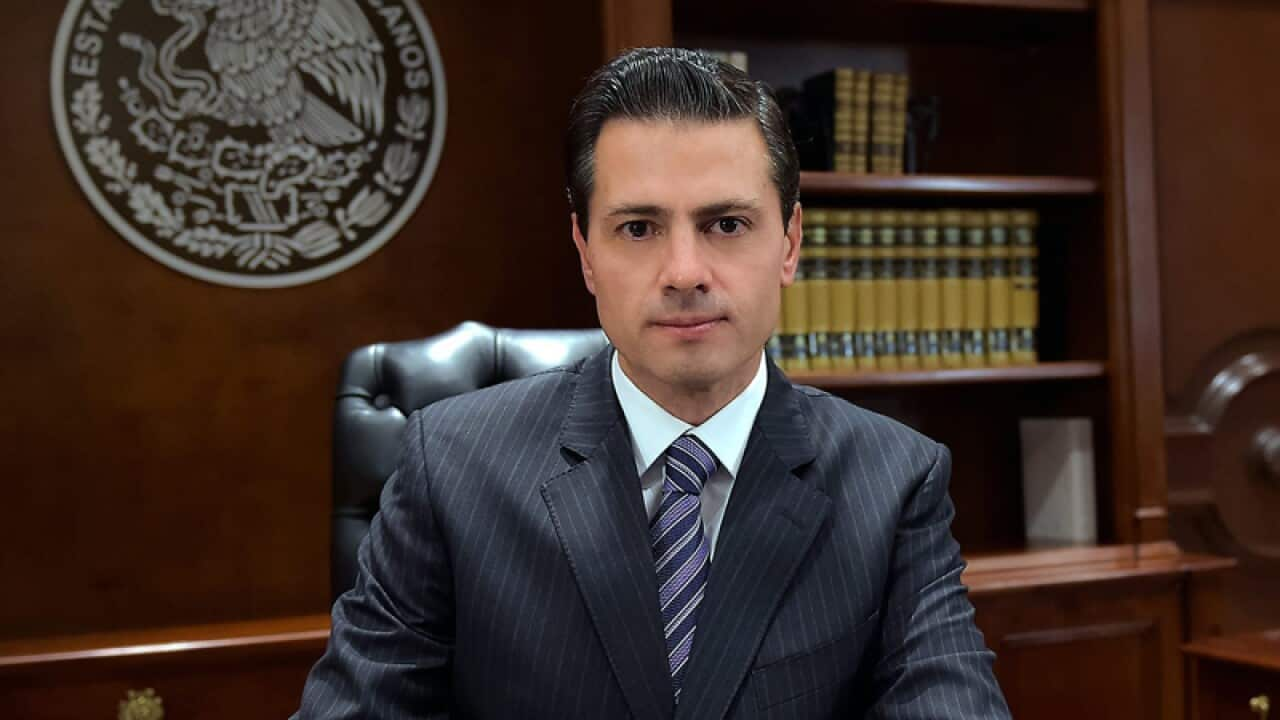Many people are just getting to bed when Roger Medina wakes up at the stroke of midnight and, after a quick coffee, heads to the US-Mexico border as his wife and infant daughter sleep.
Six hours later, having gone through US customs and immigration control and after an hour-long bus ride from the border, the 23-year-old is standing in a field, packaging lettuce at a California farm.
Medina is among the tens of thousands of laborers who legally cross into the US daily from Mexicali, just opposite California's Imperial Valley, to harvest the fruits and vegetables that fill America's supermarket shelves and eventually end up on Americans' dinner tables.
And they have warily been watching as President Donald Trump rails against Mexican immigration, accusing migrants of crime and of taking Americans' jobs, even as he orders the building of a border wall to prevent, he says, undocumented migrants or terrorists from entering the country.
"If he wants to close the border, he can come and harvest the fruits and vegetables himself," scoffed Jose Luis Carrillo, 35, as he methodically chopped iceberg lettuce heads, placing them with lightning speed into plastic bags before they are loaded in crates on conveyor belts.
"I don't think he realises who we are or the amount of work it takes for the salad he eats to reach his plate," he said with a scowl.
Almost 55,000 people cross into the US from Mexicali everyday, the majority to work in the fields, according to US Customs and Border Patrol data.
Nationwide, some 540,000 Mexicans work in the US farming and forestry sectors, according to the Pew Research Center, though it is unclear how many of them are undocumented.
In the Imperial Valley, one of the world's most productive agricultural regions, most of those who work the land are Mexicans with green cards or dual citizenship.
They line up at the border before dawn every day but Sunday to cross over, and they make the long journey back home as the sun is setting.
"No gringo could survive this," said Medina, who has been working the fields since the age of 17. His mother, Patricia, has worked in the fields for nearly two decades.
Linsey Dale, executive director of the Imperial Valley Farm Bureau, said it was undeniable that farms in the region couldn't survive without the migrant workers.
"They are valued, and without them our growers can't produce," she said. "Some are leaving their homes at 2 in the morning and then wait in line at the border for two hours."
While people like Medina and Carrillo say they are not directly affected by Trump's rhetoric on immigration, they feel offended by his comments, and anger is growing within the community at the way Mexicans are being portrayed.

"I don't think he realises who we are or the amount of work it takes for the salad he eats to reach his plate," says a Mexican worker of Donald Trump. Source: AP
'Racist but no fool'
"He is a racist but he's no fool," said Antonio Hernandez, 50, hunched over as he chopped celery on a farm, music in Spanish blasting in the background.
"He needs us to ensure that crops are grown and to honour his promises of boosting the economy."
Carrillo, who has been toiling in the fields for 17 years, says he does it for his two children, in the hope they will have a brighter future.
His seven-year-old daughter wants to be a doctor and his four-year-old son wants to be a policeman.
"I want them to do anything they want in life but this," he said, as he chopped lettuce heads with the precision of a samurai.
Antonio Rico, a green-card holder who works in the US but lives in Mexicali, where housing is more affordable, said he has been working the fields day in and day out for 30 years and now earns $11.50 an hour.
"I would be paid a pittance in Mexico," said the 50-year-old. "If you think my salary is low here, imagine what it would be over there.
"I sleep three to four hours a day but it's okay," he added. "I'll rest when I die."




